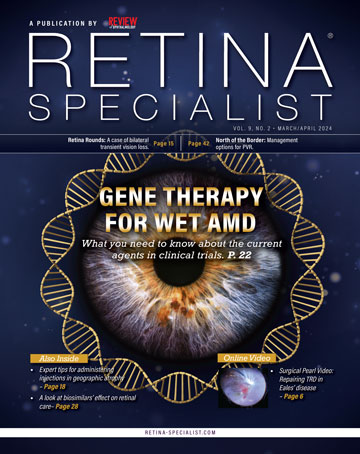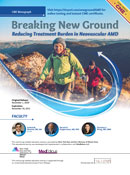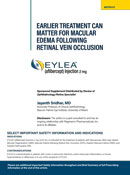This syndrome has become known as HORV, or hemorrhagic occlusive retinal vasculitis, and may be associated with exposure to intraocular vancomycin. More than a dozen cases from across the United States have been reported and Andre Witkin, MD, summarizes our current, although limited, understanding of this potentially devastating clinical entity (page 27). If you suspect a case, please report it through the Research and Safety in Therapeutics section of the American Society of Retina Specialists website.
While such tragic outcomes are rare in the management of retinal diseases, many unknowns remain in our specialty, allowing space for improvement. To that end, this edition includes pieces by leaders in the sub-specialty fields of uveitis, ocular oncology and pediatrics who describe advances in their respective niches.
While conventional diagnostic approaches or empirical treatments often suffice in the management of uveitis and intraocular tumors, persistent or unresponsive disease activity sometimes necessitates a retinal biopsy. Prithvi Mruthyunjaya, MD, and Duncan Berry, MD, describe optimal practices when performing a combined retino-choroidal biopsy (page 15).
From a treatment perspective, while corticosteroids remain an excellent option for the management of non-infectious uveitis, newer biologic options hold promise, as Thomas Albini, MD, and Chris Henry, MD, explain in their review (page 35).
For our youngest patients, Paul Chan, MD, and Mrinali Gupta, MD, assess the value of anti-VEGF and ocriplasmin injections, how imaging advances have facilitated the expansion of telemedicine and review what we know about ocular findings ascribed to the headline-grabbing Zika virus (page 15).
Finally, Calvin Mein, MD, puts Diabetic Retinopathy Clinical Research Network Protocol S results into clinical perspective (page 31).
Entering medical school, the Dean stood before my entering class with these welcoming words: “Half of what you will learn in medical school will be outdated in 10 years and the other half may well be proven wrong.” While this may be an exaggeration, it encourages us to remain vigilant observers in our practices so that we might apply our insights toward advancement of our field.
 |




